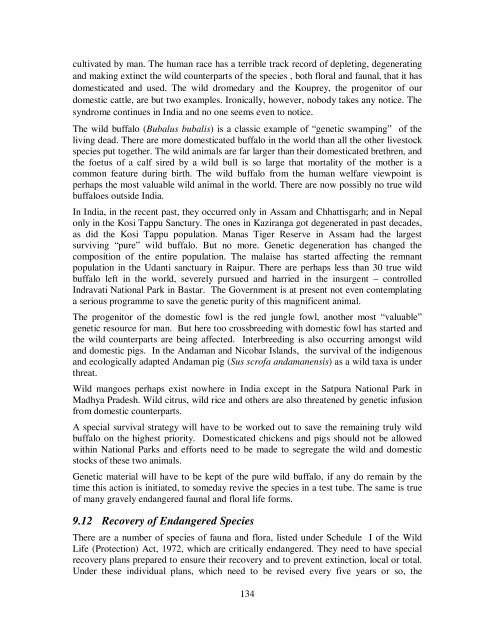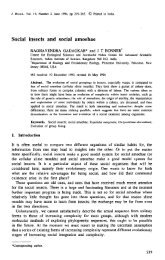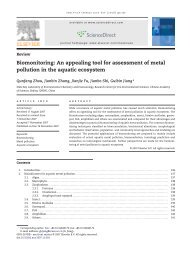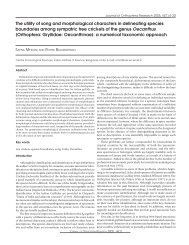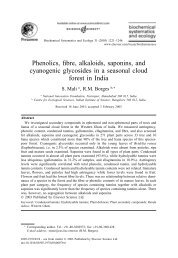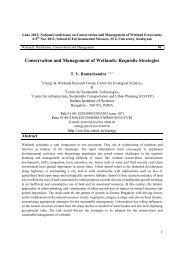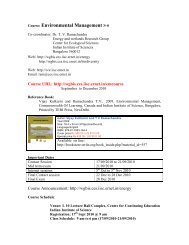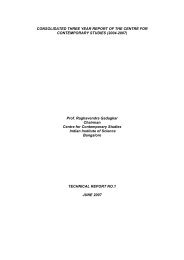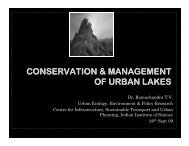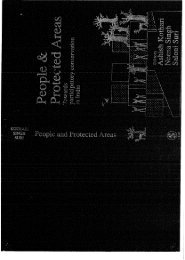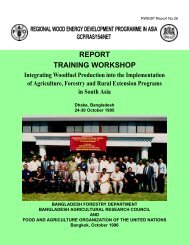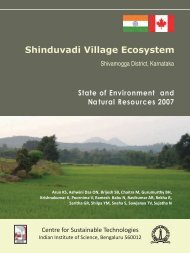Wildlife and Nature Conservation - Centre for Ecological Sciences
Wildlife and Nature Conservation - Centre for Ecological Sciences
Wildlife and Nature Conservation - Centre for Ecological Sciences
You also want an ePaper? Increase the reach of your titles
YUMPU automatically turns print PDFs into web optimized ePapers that Google loves.
cultivated by man. The human race has a terrible track record of depleting, degenerating<strong>and</strong> making extinct the wild counterparts of the species , both floral <strong>and</strong> faunal, that it hasdomesticated <strong>and</strong> used. The wild dromedary <strong>and</strong> the Kouprey, the progenitor of ourdomestic cattle, are but two examples. Ironically, however, nobody takes any notice. Thesyndrome continues in India <strong>and</strong> no one seems even to notice.The wild buffalo (Bubalus bubalis) is a classic example of “genetic swamping” of theliving dead. There are more domesticated buffalo in the world than all the other livestockspecies put together. The wild animals are far larger than their domesticated brethren, <strong>and</strong>the foetus of a calf sired by a wild bull is so large that mortality of the mother is acommon feature during birth. The wild buffalo from the human welfare viewpoint isperhaps the most valuable wild animal in the world. There are now possibly no true wildbuffaloes outside India.In India, in the recent past, they occurred only in Assam <strong>and</strong> Chhattisgarh; <strong>and</strong> in Nepalonly in the Kosi Tappu Sanctury. The ones in Kaziranga got degenerated in past decades,as did the Kosi Tappu population. Manas Tiger Reserve in Assam had the largestsurviving “pure” wild buffalo. But no more. Genetic degeneration has changed thecomposition of the entire population. The malaise has started affecting the remnantpopulation in the Udanti sanctuary in Raipur. There are perhaps less than 30 true wildbuffalo left in the world, severely pursued <strong>and</strong> harried in the insurgent – controlledIndravati National Park in Bastar. The Government is at present not even contemplatinga serious programme to save the genetic purity of this magnificent animal.The progenitor of the domestic fowl is the red jungle fowl, another most “valuable”genetic resource <strong>for</strong> man. But here too crossbreeding with domestic fowl has started <strong>and</strong>the wild counterparts are being affected. Interbreeding is also occurring amongst wild<strong>and</strong> domestic pigs. In the Andaman <strong>and</strong> Nicobar Isl<strong>and</strong>s, the survival of the indigenous<strong>and</strong> ecologically adapted Andaman pig (Sus scrofa <strong>and</strong>amanensis) as a wild taxa is underthreat.Wild mangoes perhaps exist nowhere in India except in the Satpura National Park inMadhya Pradesh. Wild citrus, wild rice <strong>and</strong> others are also threatened by genetic infusionfrom domestic counterparts.A special survival strategy will have to be worked out to save the remaining truly wildbuffalo on the highest priority. Domesticated chickens <strong>and</strong> pigs should not be allowedwithin National Parks <strong>and</strong> ef<strong>for</strong>ts need to be made to segregate the wild <strong>and</strong> domesticstocks of these two animals.Genetic material will have to be kept of the pure wild buffalo, if any do remain by thetime this action is initiated, to someday revive the species in a test tube. The same is trueof many gravely endangered faunal <strong>and</strong> floral life <strong>for</strong>ms.9.12 Recovery of Endangered SpeciesThere are a number of species of fauna <strong>and</strong> flora, listed under Schedule I of the WildLife (Protection) Act, 1972, which are critically endangered. They need to have specialrecovery plans prepared to ensure their recovery <strong>and</strong> to prevent extinction, local or total.Under these individual plans, which need to be revised every five years or so, the134


